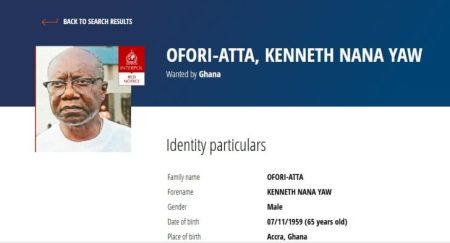The Bank of Ghana (BoG) is embarking on a comprehensive overhaul of its regulatory framework to address pressing concerns within the banking industry, focusing on consumer protection, financial stability, and enhanced transparency. This initiative stems from observed discrepancies in banking practices, including arbitrary fees, risky digital lending operations, and inadequate governance structures. Governor Dr. Johnson Asiama outlined the forthcoming directives during a meeting with Heads of Banks following the Monetary Policy Committee (MPC) meeting, emphasizing the BoG’s commitment to fostering a more robust and equitable financial landscape. The new regulations aim to instill greater accountability and ethical conduct within the banking sector.
One of the primary targets of the regulatory overhaul is the lack of transparency in pricing and fee structures. The BoG plans to mandate comprehensive disclosure requirements for all licensed banks, compelling them to provide clear and detailed information about their charges to customers. This move is designed to empower consumers with the necessary information to make informed decisions and prevent them from being subjected to hidden or excessive fees. Furthermore, the BoG will enhance scrutiny of foreign exchange (FX) transactions to ensure transparency and prevent manipulative practices. The heightened oversight aims to maintain stability in the FX market and protect the interests of individuals and businesses engaged in international trade.
The burgeoning digital lending space will also come under tighter regulatory control. The BoG acknowledges the potential risks associated with unregulated digital lending platforms, including predatory lending practices and data privacy breaches. New measures will be introduced to ensure that these platforms operate within a secure and ethical framework, safeguarding borrowers from exploitation and promoting responsible lending. This includes stricter licensing requirements, enhanced due diligence processes, and ongoing monitoring of digital lending activities. The BoG aims to strike a balance between fostering innovation in the fintech sector and protecting consumers from potential harm.
Addressing the issue of non-performing loans (NPLs) is another key element of the BoG’s regulatory agenda. High NPL ratios can undermine the stability of the banking system and hinder economic growth. The BoG will implement measures to manage NPLs more effectively, including stricter guidelines for loan provisioning and recovery procedures. A notable measure is the introduction of a 10% cap on NPL ratios, which banks will be expected to adhere to by 2026. This will incentivize banks to adopt more prudent lending practices and strengthen their risk management frameworks.
The BoG is also taking steps to address unfair interest rate practices and ensure the financial soundness of banks. Dr. Asiama highlighted the unacceptable practice of some banks applying interest charges to inactive credit accounts, leading to situations where accrued interest surpasses the original principal. Such practices are deemed unethical and distort the true profitability of lending portfolios. The BoG expects all banks to review their pricing models and align them with principles of fair treatment and transparency. Furthermore, measures will be implemented to push for the recapitalization of underperforming banks, ensuring they maintain adequate capital buffers to withstand financial shocks and protect depositors’ funds.
The rollout of these comprehensive reforms will be phased, with some directives taking effect as early as July and August 2025, while others, such as the NPL ratio cap, are slated for implementation in 2026. A significant component of the new regulations is the requirement for commercial banks to publish details of “blacklisted” borrowers and entities with a history of default in their annual accounts. This measure aims to promote greater accountability and transparency within the credit market, enabling banks to make more informed lending decisions and discouraging borrowers from defaulting on their obligations. The overarching goal of these reforms is to restore integrity in banking operations, protect consumers from predatory practices, and foster a more stable and resilient financial sector in Ghana.













